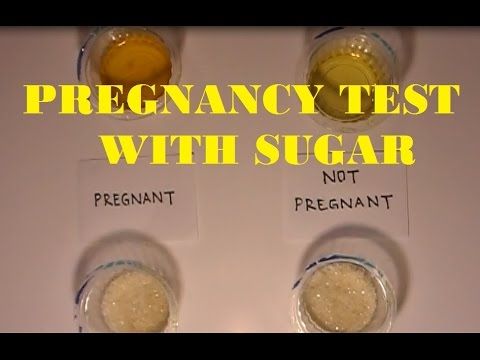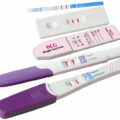Pregnancy tests check for the presence of the pregnancy hormone, human chorionic gonadotrophin (HCG), in your urine. Your body begins to produce HCG after you conceive. If you get a positive test result on the first day of your missed period, it’s probably about 2 weeks since you conceived.
What is the sugar pregnancy test?
The sugar pregnancy test is a DIY test that involves combining your urine with sugar to tell whether you’re pregnant. Advocates claim that, like drugstore home pregnancy tests, the sugar pregnancy test can detect the presence of the pregnancy hormone human chorionic gonadotropin (hCG).
How do you take the sugar pregnancy test?
It’s pretty simple. All you have to do is put a few spoonfuls of white sugar in a sterilized bowl and pour your first morning urine over the sugar. If the sugar clumps up after a few minutes, you’re pregnant, according to legend. If it readily dissolves and doesn’t clump, you’re not.
How does a homemade pregnancy test with sugar work?
There’s no scientific explanation for how — or why — sugar pregnancy tests might work. Advocates say that hCG makes it harder for sugar to dissolve in urine, causing clumps to form instead. But that’s just speculation. There’s no evidence that the sugar pregnancy test actually works. SEE: How Long After Taking Folic Acid Will I Get Pregnant
How accurate is the sugar pregnancy test?
Sugar pregnancy tests have never been studied, and no major medical organization recommends using them. So you can’t count on them to tell you whether you’re pregnant. Store-bought home pregnancy tests are generally proven to pick up hCG, though how low a level they can detect varies. (In other words, you’re going to get more accurate results the longer you wait to test because that gives hCG a chance to build up).
Sugar pregnancy tests are the opposite — they aren’t proven to pick up hCG at all. While it might provide some amusement to do the test, the best way to learn if you’re pregnant is to take a standard home pregnancy test after you’ve missed your period and then confirm any positive results with your doctor.
NB: An elevated β-hCG in the absence of viable pregnancy can occur for multiple reasons and has a broad differential diagnosis including miscarriage, ectopic pregnancy, pituitary hCG production, trophoblastic disease, and phantom hCG
Watch how to do a sugar pregnancy test in the video below





